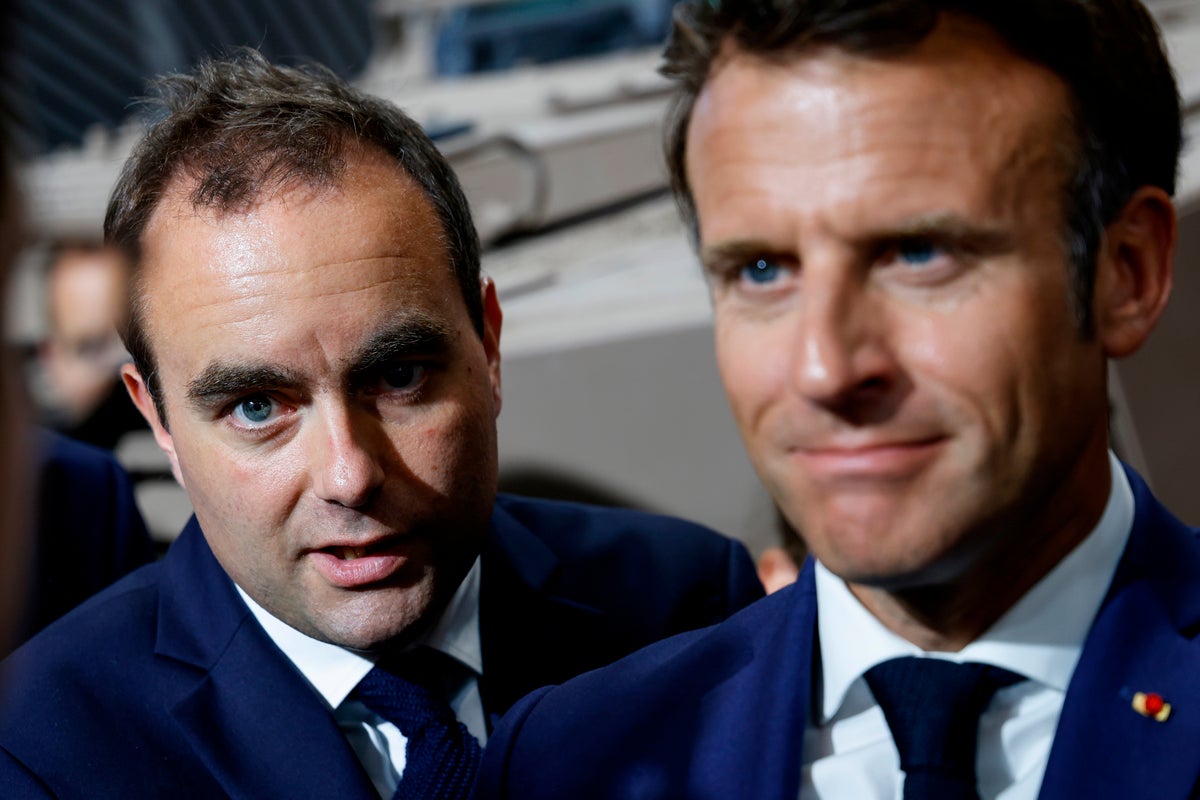Quelle surprise? The French prime minister, Sebastien Lecornu, has resigned only 27 days after he was appointed by President Macron.
Without being unkind – it’s hardly his fault – his truncated premiership makes Liz Truss, or indeed a lettuce, look a paragon of longevity. Indeed, he lasted only a few hours before his newly assembled cabinet decided that they didn’t want to serve anyway and forced their boss to quit, as is their constitutional right.
As every schoolboy now knows, Albert Einstein didn’t actually say, “The definition of insanity is doing the same thing over and over again and expecting different results,” but someone did, and in the case of contemporary French politics, they were right.
 Sebastien Lecornu, here with French President Emmanuel Macron, has resigned as prime minister after 27 days (AFP/Getty)
Sebastien Lecornu, here with French President Emmanuel Macron, has resigned as prime minister after 27 days (AFP/Getty)
Lecornu, who we hardly got to know, is a centrist from the Renaissance group, Emmanuel Macron’s now floundering political vehicle. He replaced Francois Bayrou, another centrist politician in the Democratic Movement, supportive of Macron. He lasted for some 270 days, albeit after Macron had initially “unappointed” him for a few hours because the president briefly changed his mind.
Before that, there was Michel Barnier, well known to his British friends (90 days), and a string of fairly short-lived premiers reminiscent of the chronic instability of the Third and Fourth Republics. Under the rules of the Fifth Republic, invented by Charles de Gaulle in 1958, this sort of humiliating “immobilisme” nonsense was not supposed to take place. Old habits die hard, perhaps.
Deja vu all over again, you might say. Yet this crisis is not just a French farce.
It concerns the future of stable democratic politics in the EU’s second-largest economy – the only other nuclear power in Europe besides Britain – a close ally, and one that is all too close to falling to rule by the fascistic National Rally, or Rassemblement National (RN), in effect led by Marine Le Pen.
The next presidential election isn’t until 2027, but meanwhile, France needs a government to manage its domestic affairs, especially a budget – foreign and defence policy are reserved to the president – and the National Assembly is hung.
It has been ever thus since Macron took the catastrophically impetuous decision in June 2024 to dissolve the parliament in which he and his allies enjoyed a majority, because he wanted to reassert personal authority after some poor European election results. He gambled and lost. The far right and hard left surged forward and, in their own interests, refused to join in the coalition building. Hence the chaos.
It feels like the centre cannot hold, yet it must – even if it means months more of this deadlock.
Dissolving parliament again would wipe out the centre parties and open the way to a Le Pen-linked premiership, with all that entails for France and for Europe. Because they come from different traditions, it would be far worse than Giorgia Meloni in Italy, and more akin to Viktor Orban in Hungary – pro-Putin, more divisive, institutionally hostile to the EU, strange economic ideas, and bad for European security. The “coalition of the willing” on Ukraine would be a thing of the past, for a start.
The president has the power to rule by decree, provided parliament sits, which he may have to do for periods while the search for a viable administration goes on.
The irony is that a president so weakened by his own errors of judgement and his own vanity should end up ruling as a virtual autocrat.
If he does, and France is left in stalemate until the presidential elections due in 2027, the future feels bleak indeed.
Macron cannot run for another term under the constitution, and, because of a recent court ruling on corruption, neither can Le Pen. Some anti-RN proxy will run against Le Pen’s protege, Jordan Bardella. After that, there will probably be fresh elections for the parliament, if they’ve not been held already.
The best that can be hoped for is that Bardella will be defeated, probably narrowly, and the moderate centre-left and right parties will recover following that electoral marker.
The worst prospect? Apres Macron, le deluge.
